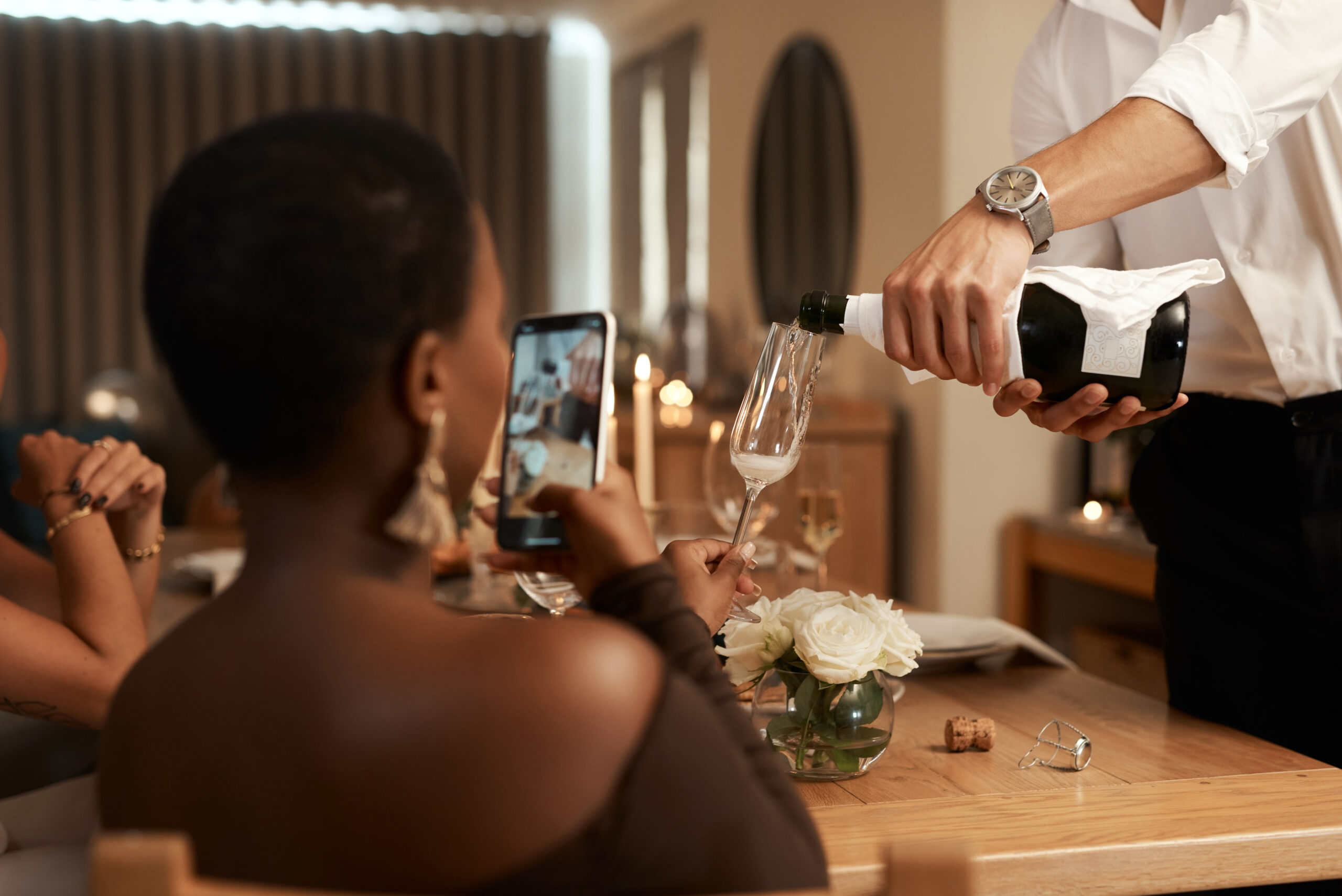How can luxury brands leverage influencer marketing while maintaining their exclusivity and prestige? What are the potential risks associated with influencer marketing partnerships, and how can brands safeguard their reputation? Why is authenticity crucial in influencer marketing for luxury brands, and how can brands ensure genuine collaborations?
Influencer marketing has become a powerful tool for luxury brands looking to engage with modern consumers while maintaining their heritage and exclusivity. By collaborating with carefully selected influencers who embody their brand values, luxury labels can humanize their image, create aspirational yet relatable content, and reach new demographics, particularly Gen Z and millennial audiences. These partnerships allow brands to tell compelling stories, foster emotional connections, and enhance their digital presence in a way that feels organic and authentic. When executed strategically, influencer collaborations can reinforce a brand’s prestige while adapting to the evolving digital landscape.
However, influencer marketing also presents risks that luxury brands must navigate carefully. Overexposure, misaligned partnerships, and reputational damage can erode the exclusivity that sets luxury brands apart. To mitigate these challenges, brands must establish strict vetting processes, prioritize authenticity, and implement long-term strategies that go beyond fleeting trends. Transparency, contractual clarity, and continuous monitoring of influencer collaborations are essential to safeguarding a brand’s image. By approaching influencer marketing with precision and foresight, luxury brands can leverage its benefits while protecting the integrity and desirability that define their identity.
Table of Contents:
The Power & Risks of Influencer Marketing in Luxury Branding
The Importance of Authentic Partnerships
Establishing Standards & Processes for Influencer Selection
Thorough Vetting, Due Diligence & Screening for Consistency
Strategies to Safeguard & Enhance Brand Reputation
Prioritize Transparency and Disclosure
Ongoing Monitoring & Proactive Management
Introduction
Reputation is the cornerstone of a luxury brand, reflecting a legacy meticulously crafted over time, built on exclusivity, craftsmanship, and an unwavering commitment to quality. In today’s digital age, however, maintaining this reputation demands compelling storytelling and authentic connections with customers.
As a luxury brand strategy, influencer marketing creates an opportunity for brands to leverage the trust and influence of key individuals to reach target audiences authentically and engagingly. However, navigating this powerful strategy requires careful consideration.
Influencers and celebrities alike often build their brands by sharing their personal lives, creating a level of intimacy that can present both opportunities and challenges for luxury brands.
Brands must harness the power of influencer marketing to humanize the brand and connect them with consumers on a more personal level while simultaneously mitigating the inherent risks to maintain a carefully cultivated image.
The Power & Risks of Influencer Marketing in Luxury Branding
Influencer marketing presents significant opportunities for luxury brands seeking to engage new markets and expand their reach without sacrificing exclusivity. Thoughtful collaborations can amplify brand narratives, create meaningful emotional resonance, and offer a fresh perspective on established luxury codes.
Opportunities
Influencer marketing offers several key opportunities for luxury brands, including:
Targeted Reach
Influencers excel at targeting specific demographics, particularly Gen Z and millennials. This allows luxury brands to connect with aspirational consumers, cultivating brand loyalty early on and building a future customer base. By engaging these demographics, brands can introduce their heritage and craftsmanship to a new generation.
Humanizing Luxury
Influencers bridge the gap between exclusivity and relatability. By presenting luxury in an aspirational yet approachable light, the brand can feel more attainable without compromising its luxury image. This humanization allows consumers to envision themselves within the brand’s narrative, fostering a stronger connection.
Elevated Content Creation
Influencers are adept at creating high-quality, engaging content. This expertise allows luxury brands to leverage diverse and visually compelling narratives, keeping their digital presence fresh and dynamic with a constant stream of influencer-generated content. This approach can be significantly more cost-effective than traditional advertising campaigns, offering a strong return on investment. Collaborating with influencers also offers access to their creative vision and unique storytelling abilities. Moreover, influencer-generated content often feels more organic and less like traditional advertising, which can be particularly appealing to discerning audiences.
Risks
While the opportunities are compelling, it’s crucial to acknowledge and mitigate the potential risks associated with influencer marketing.
Reputational Damage
Whether they’re nano-influencers with a few thousand followers or have upwards of one million watchful eyes on their platforms, influencers hold significant power and responsibility. A single misstep — a controversial statement, a poorly received action, or even an ill-timed photograph — can tarnish a luxury brand’s reputation with lasting consequences.
Erosion of Exclusivity
Overexposure through widespread influencer campaigns can dilute a brand’s aura of exclusivity, a defining characteristic of luxury. When a brand becomes ubiquitous, it risks losing the allure of rarity and prestige that defines the luxury experience. Careful selection of influencers and strategic campaign planning are crucial to maintaining this balance.
Inauthentic Partnerships
If an influencer lacks a genuine connection with the brand, the collaboration can feel forced and damage the brand’s credibility. Discerning luxury, consumers are quick to detect in authenticity, which can lead to distrust and a negative perception of the brand. A genuine affinity between the influencer and the brand is essential for a successful partnership.
The Importance of Authentic Partnerships
Authenticity is key to successful influencer marketing in the luxury sphere. It requires symbiotic relationships where the brand and influencer mutually benefit, going beyond mere visibility to enhance brand value through genuine connections. Authentic partnerships often result in more engaging and impactful content that resonates deeply with audiences. Three essential elements drive authentic partnerships: shared values, a genuine affinity for the brand, and audience relevance.
Shared Values
An influencer’s values should align with the brand’s core principles. This synergy ensures consistent messaging and reinforces brand identity. Influencers, in essence, become brand ambassadors, and their actions directly impact brand equity. In luxury, where reputation is everything, this alignment is critical. Before solidifying an influencer partnership, luxury brands should consider:
- Does the partnership naturally align with brand positioning?
- Does the influencer genuinely embody the brand values?
- Does the influencer’s audience align with the brand’s target demographic?
- Will the collaboration resonate authentically with discerning luxury customers?
Brand Affinity
Influencers should genuinely appreciate the brand’s heritage, craftsmanship, and products. Forced endorsements lack credibility and are easily detected by luxury consumers, ultimately proving counterproductive.
Influencers who genuinely love and have a deep connection to and respect for the brand create content that resonates with both the established audience and a wider demographic. Conversely, partnerships driven solely by financial incentives lack the passion and authenticity that luxury consumers value, potentially harming the brand’s reputation.
Audience Relevance
Aligning the influencer’s audience with the brand’s target demographic is essential to ensure the message reaches the intended consumers. While engaging with younger, aspirational audiences is valuable for long-term growth, the core target demographic should remain a priority. The power of influencer marketing lies in its flexibility; brands can leverage different influencers to connect authentically with various segments of their target audience. A one-size-fits-all approach rarely works, and a tailored strategy is key.
For instance, if a brand aims to connect with affluent professionals interested in sustainable luxury, the chosen influencer’s audience should reflect those interests. Similarly, a brand focused on reaching fashion-conscious Gen Z or Gen X consumers would select an influencer with a strong following in those demographics.
This targeted approach doesn’t preclude engaging a mix of demographics or reaching niche audiences within a broader target. Many influencers have diverse followings, presenting an opportunity for luxury brands to cultivate future customers while engaging their core audience.
Consider Tiffany & Co’s diverse influencer strategy. The brand partners with established luxury lifestyle influencers, like Aimee Song, as well as celebrities like Anya Taylor Joy, Hailey Bieber, and K-pop star Rosé. This strategy allows them to reach their core affluent demographic while simultaneously engaging with younger digital creators to build connections with next-generation luxury consumers. This multi-faceted approach allows them to maintain their premium positioning while cultivating future brand advocates.
Establishing Standards & Processes for Influencer Selection
Successful influencer marketing campaigns begin with a robust and careful selection process. Luxury brands, with their reputations as their lifeblood, cannot afford to partner with just any trending influencer with a large following. Clear standards and processes must be in place to identify desired partnership characteristics, mitigate risks, ensure long-term success, and maintain the brand’s luxury image. Furthermore, nurturing ongoing communication and building strong relationships with selected influencers is crucial for fostering collaboration and maximizing the impact of the partnership.
Thorough Vetting, Due Diligence & Screening for Consistency
Before finalizing an influencer partnership, thorough research on all potential candidates is crucial. This includes examining their past collaborations, public image, online presence, overall brand alignment, engagement rates, audience demographics, and everything in between.
These background checks can reveal whether the influencer has a consistent history of upholding luxury brand values. Early vetting can also identify potential red flags, such as past behavior or controversies or inconsistencies in their online persona, before they escalate into reputational crises for the brand. Such issues, if left unaddressed, can significantly damage brand credibility and erode consumer trust.
Consistency is key. Brands should look for influencers who have demonstrated long-term alignment with their values, not just recent or superficial adherence. This long-term view provides insights into the influencer’s character and personal brand, both vital to a successful and authentic partnership.
Clear Contractual Agreements
Well-defined contracts are essential in any partnership, setting clear expectations from the outset. Contracts should clearly outline deliverables, timelines, payment terms, usage rights, exclusivity clauses (if any), and, critically, disclosure requirements.
Clearly defined disclosure requirements are essential to maintain transparency, ethics, and consumer trust — critical pillars of a luxury brand’s reputation and legacy. The contract should explicitly state how sponsored content must be disclosed, including the use of hashtags like #ad or #sponsored, and comply with all relevant advertising regulations. This transparency protects both the brand and the influencer. Thorough and well-written contracts leave no room for ambiguity, ensuring both parties understand their responsibilities and how the brand should be represented.
Strategies to Safeguard & Enhance Brand Reputation
While partnering with influencers carries inherent risk, the potential rewards for luxury brands are significant. However, the approach to influencer marketing must be strategic, thoughtful, and meticulously crafted to protect and enhance the brand’s reputation.
Prioritize Transparency and Disclosure
Transparency is vital for building and maintaining consumer trust, which is essential for any luxury brand’s success. This requires clear disclosure of all sponsored content, adhering to both ethical best practices and legal requirements. In the United States, the Federal Trade Commission (FTC) provides specific guidelines for influencer marketing disclosures, emphasizing clear labeling with hashtags like #ad or #sponsored, prominent placement of disclosures, and straightforward language.
This transparency isn’t simply about following the rules; it’s about openly acknowledging the partnership, respecting the consumer’s intelligence, and fostering stronger, more authentic partnerships with both consumers and influencers. When a brand is upfront about sponsored content, it reinforces its integrity, strengthens consumer relationships, and builds a strong foundation of trust that benefits all parties involved.
Ongoing Monitoring & Proactive Management
Reputation management requires ongoing commitment. For influencer collaborations, brands must continuously monitor the influencer’s activities — both online and offline — to ensure consistency with brand values, image, and contractual obligations. This includes tracking social media engagements, public appearances, and any potential controversies.
Continuous monitoring allows luxury brands to keep a watchful eye on the campaign’s performance, assess its relevance over time, and proactively intervene if and when issues arise. Addressing issues promptly prevents escalation and minimizes potential damage to the brand’s reputation.
Long-Term Vision
A crucial element of successful influencer marketing is adopting a long-term strategic vision. The benefits of this approach include:
- Authenticity: A consistent, long-term approach allows for deeper storytelling and more authentic connections with influencers and their audiences.
- Brand Building: Sustained efforts build brand recognition and reinforce core values over time, creating a stronger brand identity.
- Trust & Credibility: Authenticity and consistency foster trust and credibility with discerning luxury consumers who value genuine relationships over fleeting trends.
- Measurable Impact: A long-term strategy allows for a more meaningful measurement of influencer marketing ROI beyond short-term metrics such as likes and shares.
This long-term vision prioritizes building a sustainable brand presence and fostering genuine connections with a target audience rather than chasing fleeting trends and short-term gains. Individual collaborations may vary in duration. Some may naturally evolve into long-term partnerships, while others may remain project-based. The key is to approach each collaboration with a strategic mindset, considering how it contributes to the overarching brand narrative and long-term goals.
Conclusion
Influencer marketing offers substantial potential for luxury brands. By prioritizing authenticity, shared values, and a long-term vision, brands can leverage influencer partnerships to enhance reputation and connect with their target audience on a deeper level. This requires a commitment to transparency, ongoing monitoring of partnerships, and cultivating strong relationships with key influencers.
Careful planning, thorough vetting, and a clear understanding of the potential risks and rewards are crucial. For luxury brands, where reputation is paramount, influencer marketing — and outside partnerships in general — demands a strategic approach executed with thought, precision, and great care.
Influencer marketing is a powerful tool for luxury brands, but it requires careful wielding. Authenticity, transparency, and a long-term vision are the essential ingredients for successful and reputation-enhancing influencer partnerships.




